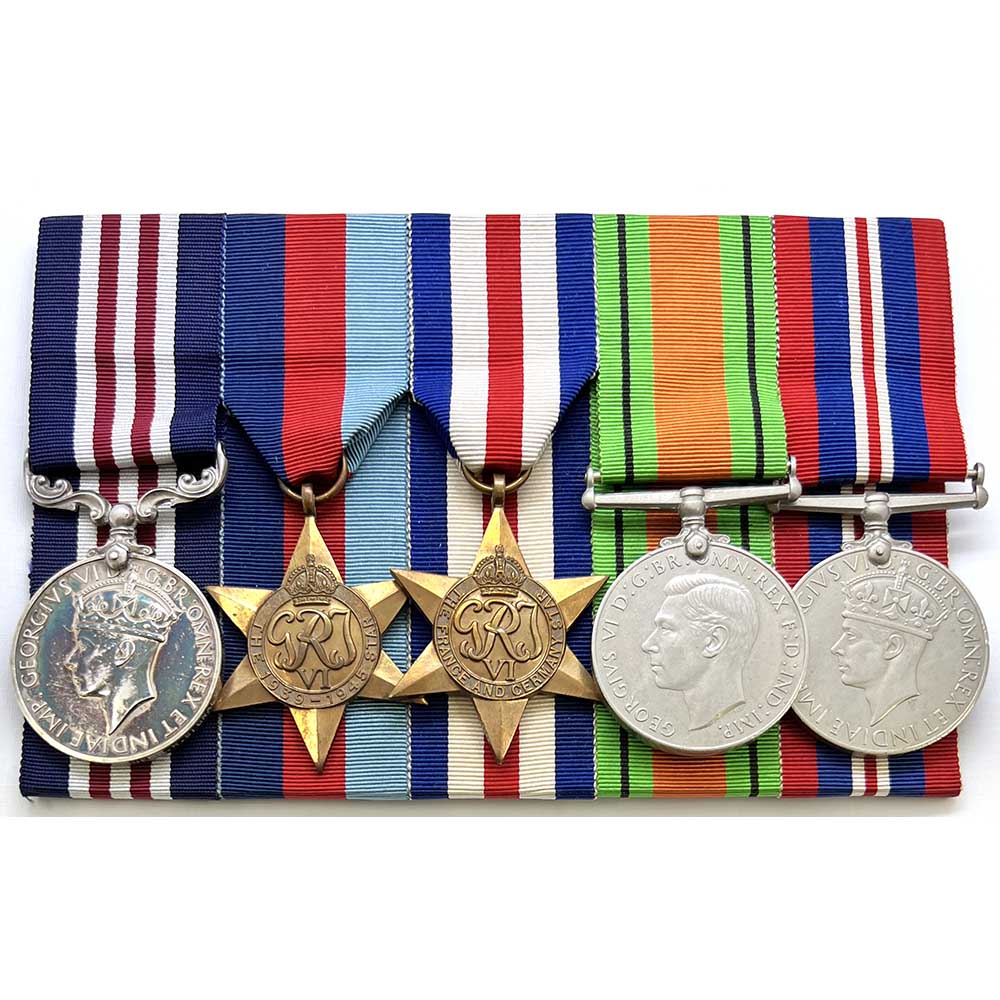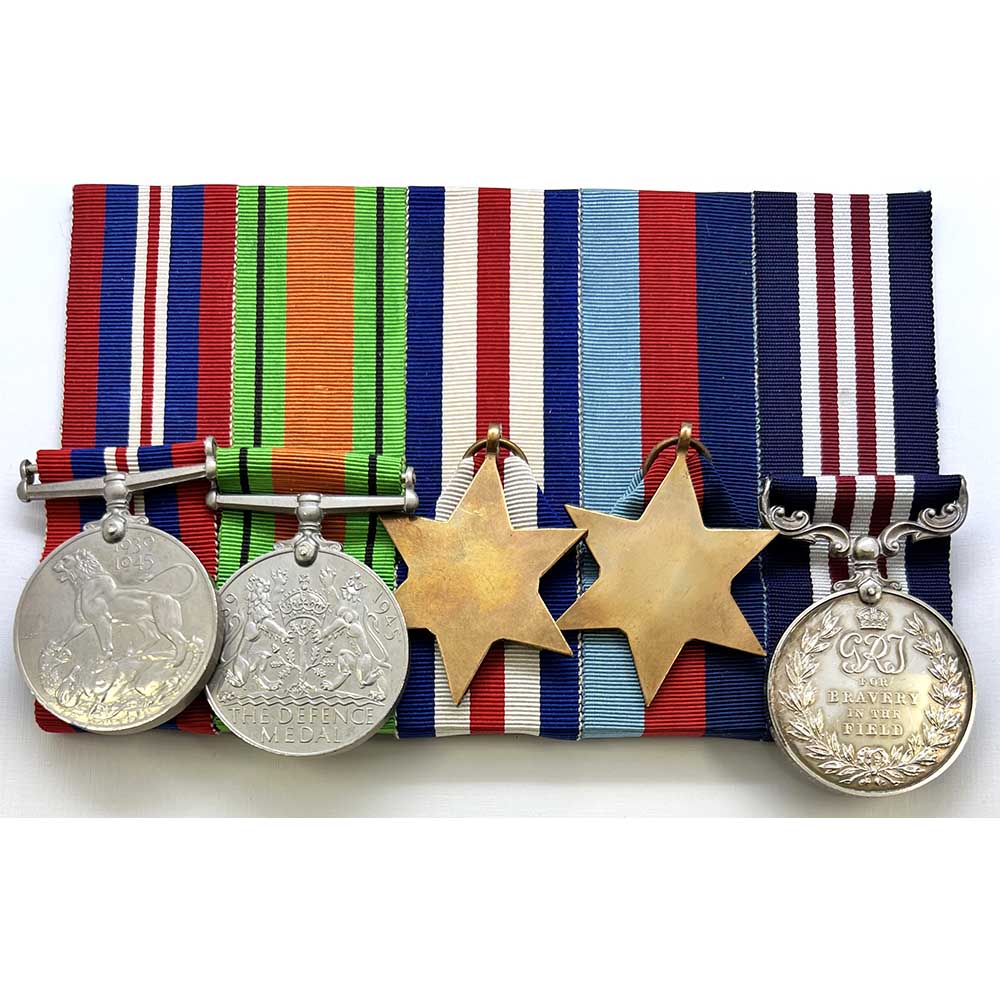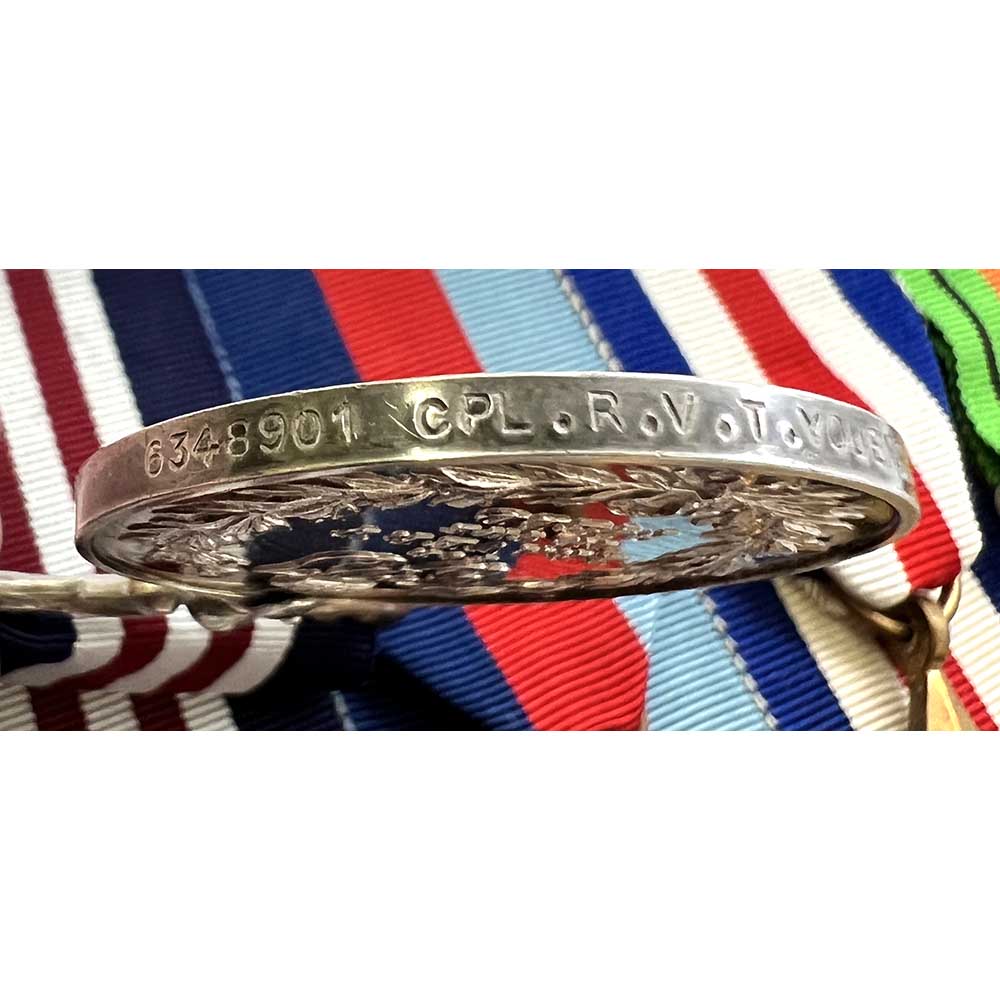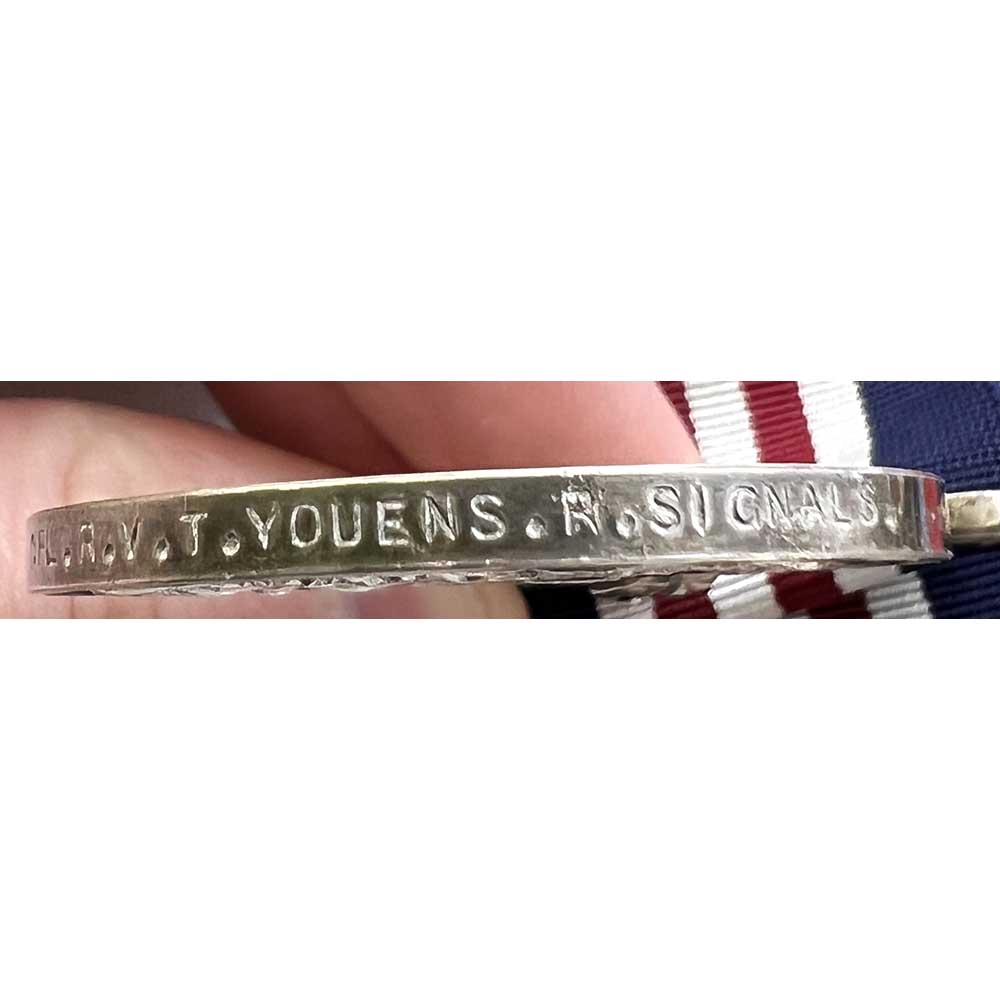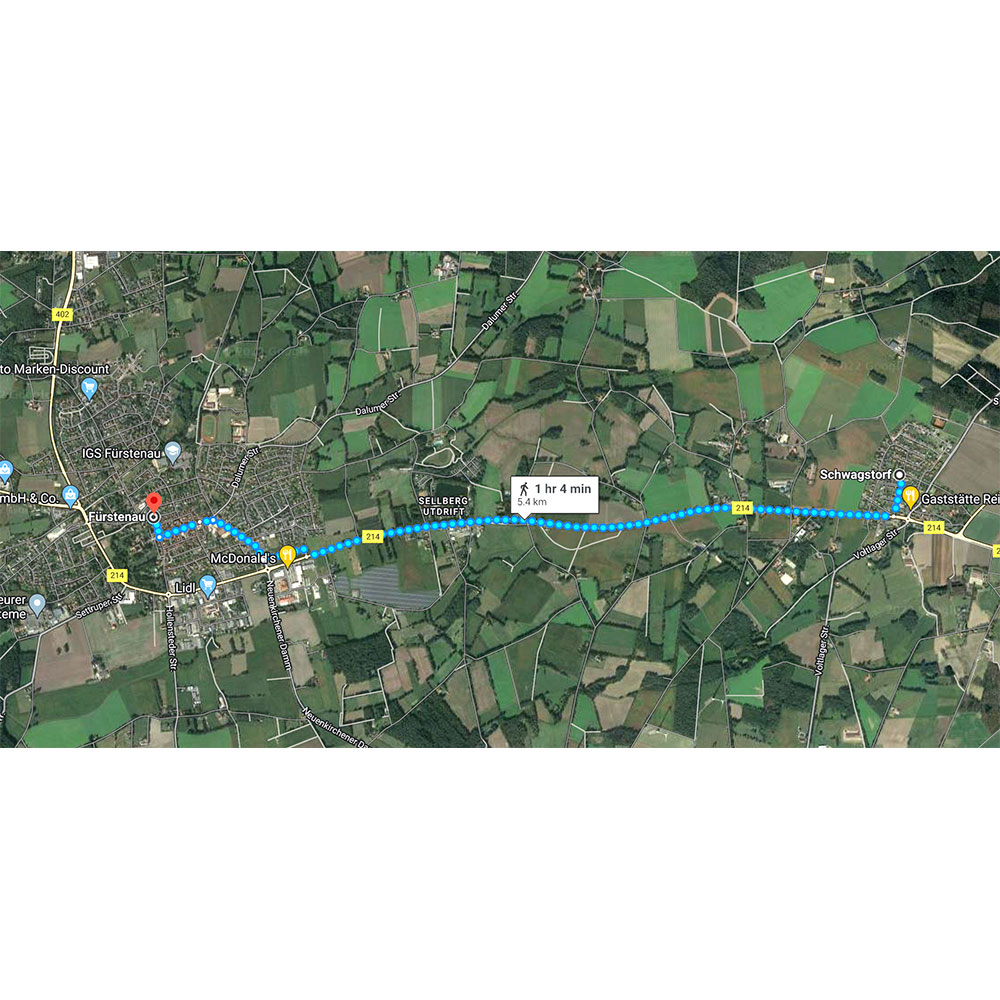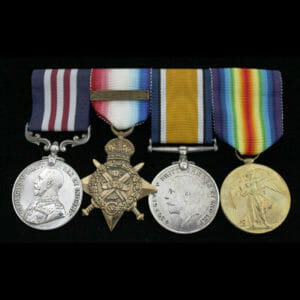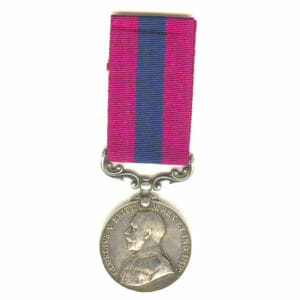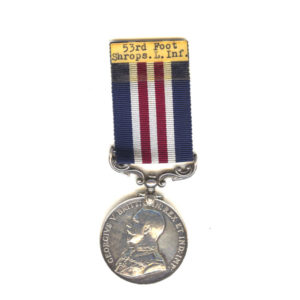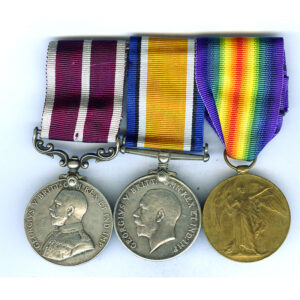Description
Military Medal, GVI, 1939-45 Star, France and Germany Star, Defence Medal, War Medal, Corporal Richard Victor Thomas Youens, Royal Signals, led a small detachment deep into Germany, ambushed by Germans and with only 9 men repulsed them, taking 20 prisoners.
With a lengthy recommendation for the award, detailing his bravery on numerous occasions doing dangerous work.
In the photograph is the Bundesstrasse B214 in modern day, now farmland at the side of the road instead of a wood, this appears to be the road between Furstenau and Schwagstorf where Youens was ambushed and took 20 prisoners.
Award announced in the London Gazette, 24th January 1945.
Officially impressed: “6348901 CPL R.V.T. YOUENS. R. SIGNALS.”
Medals display mounted
Provenance, Ex Christies, 21st October 1991, £308.
Corporal Richard Youens and his tiny detachment was an unstoppable force as the British Army advanced into Germany.
In his efforts to keep his important communication line running he had to constantly move right to the front lines and was constantly exposed to enemy fire, his Commanding Officer described what he overcame as “Almost insuperable enemy and natural obstacles.”, often times the area was occupied by Enemy Tanks and he still carried on in his Lorries.
One day his little unit of 9 men was attacked from a wood by the enemy, Cpl Youens led his men bravely and took no casualties, repelling the attack and taking home about 20 prisoners of war.
Later during the Battle of the Reichswald, known as Operation Veritable, the Germans had flooded the area in an attempt to stop the Allied advance, the only people getting through were the Canadian’s Amphibious vehicles, apart from Cpl Youens, of course, who abandoned his useless vehicles to go into the flooded areas, choosing to manhandle the supplies, still somehow managing to build and repair the lines which were constantly being taken out by enemy fire.
His full citation reads:
“Throughout the campaign, Cpl Youens has commanded a detachment of a line section, employed on building the Corps lines forward. During the whole period, and particularly in the advance from the Rhine when his detachment was usually the foremost, he has consistently shown courage and determination of the very highest order in pressing on his work whatever the difficulties.
In his zeal to get his line as far ahead as possible he regularly worked forward of Battalion HQ into Company areas where his heavy vehicles inevitably attracted fire: several times the end of his line was used by a Battalion for communication with a forward Company.
Equally often his lorries were the only ‘soft’ vehicles in the neighbourhood of an armoured force.
On 9th April his detachment of 9 men was working a little way behind the leading squadron of tanks, on a stretch of the road from Furstenau to Schwagsdorf, where there were no other troops, when they were attacked from a wood just off the road.
Cpl Youens handled his detachment so ably that they not only repelled the attack without loss but took about 20 prisoners; then continued their line.
In the Reichswald fighting this detachment worked for days and nights in a flooded area where their vehicles were useless and all stores had to be manhandled, building and repairing lines which were continually put out by enemy fire. Only the fine example and drive of Cpl Youens kept his men going.
These two instances are typical of the very high standard of personal bravery, leadership and resolution which Cpl Youens has always displayed in the face of, sometimes, almost insuperable enemy and natural obstacles.”
The recommendation was made by Major W.C. Morgan, Royal Signals and Lieutenant General B.S. Horrocks, Commander of 30 Corps Royal Signals.
HIS LIFE
Richard Victor Thomas Youens, was born on 18th February 1916 in Maidstone, Kent, where he later died during 1990.
The son of Richard Youens, a Skilled labourer who worked with boilers and Nellie Masters, a Charge Hand at a Laundry.
Going into the war, Richard was a young Dryerman at a Paper Mill living with his family in Maidstone.
As soon as he returned home from the war, he married Constance M. Hart, during late 1946.
